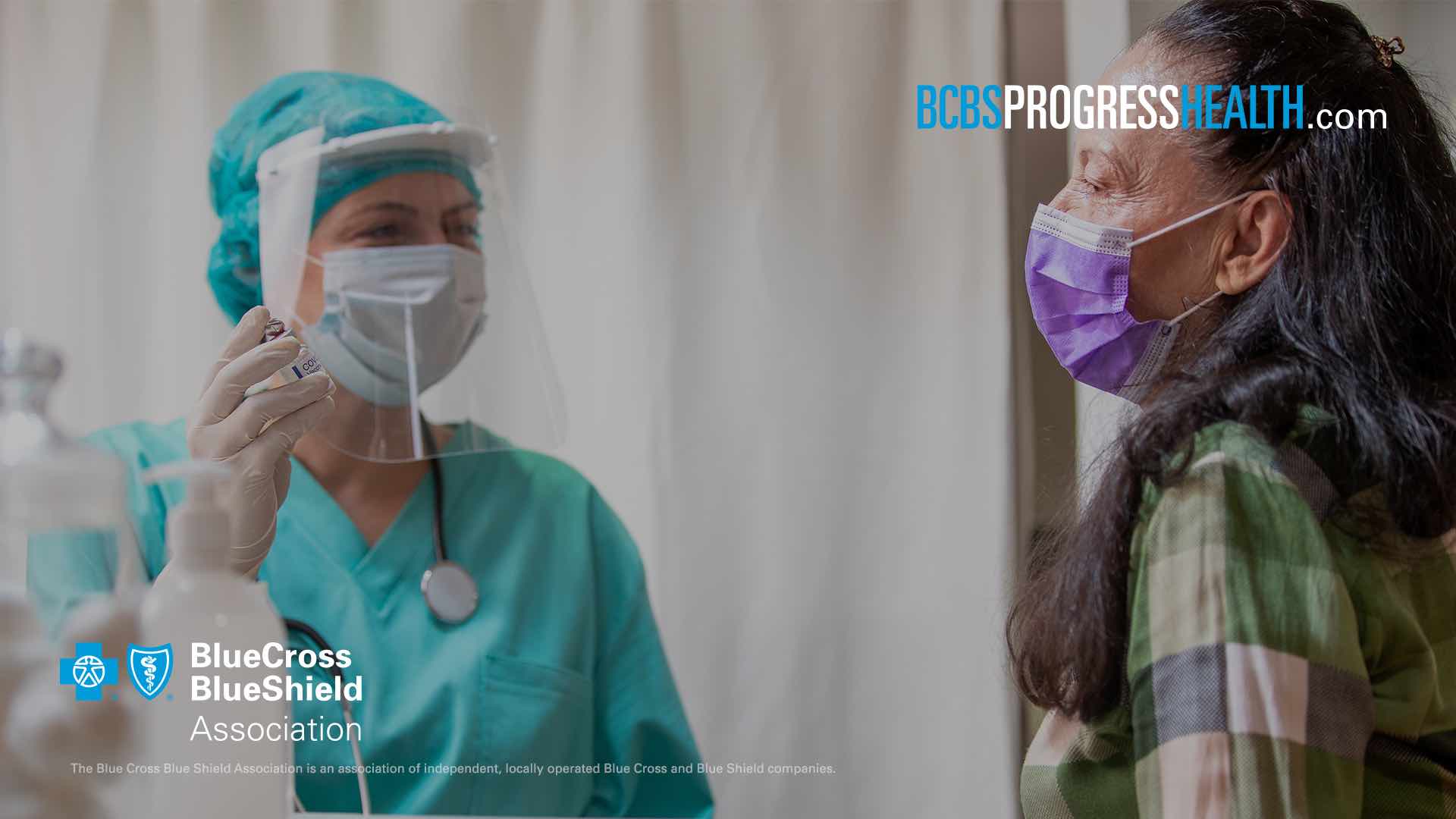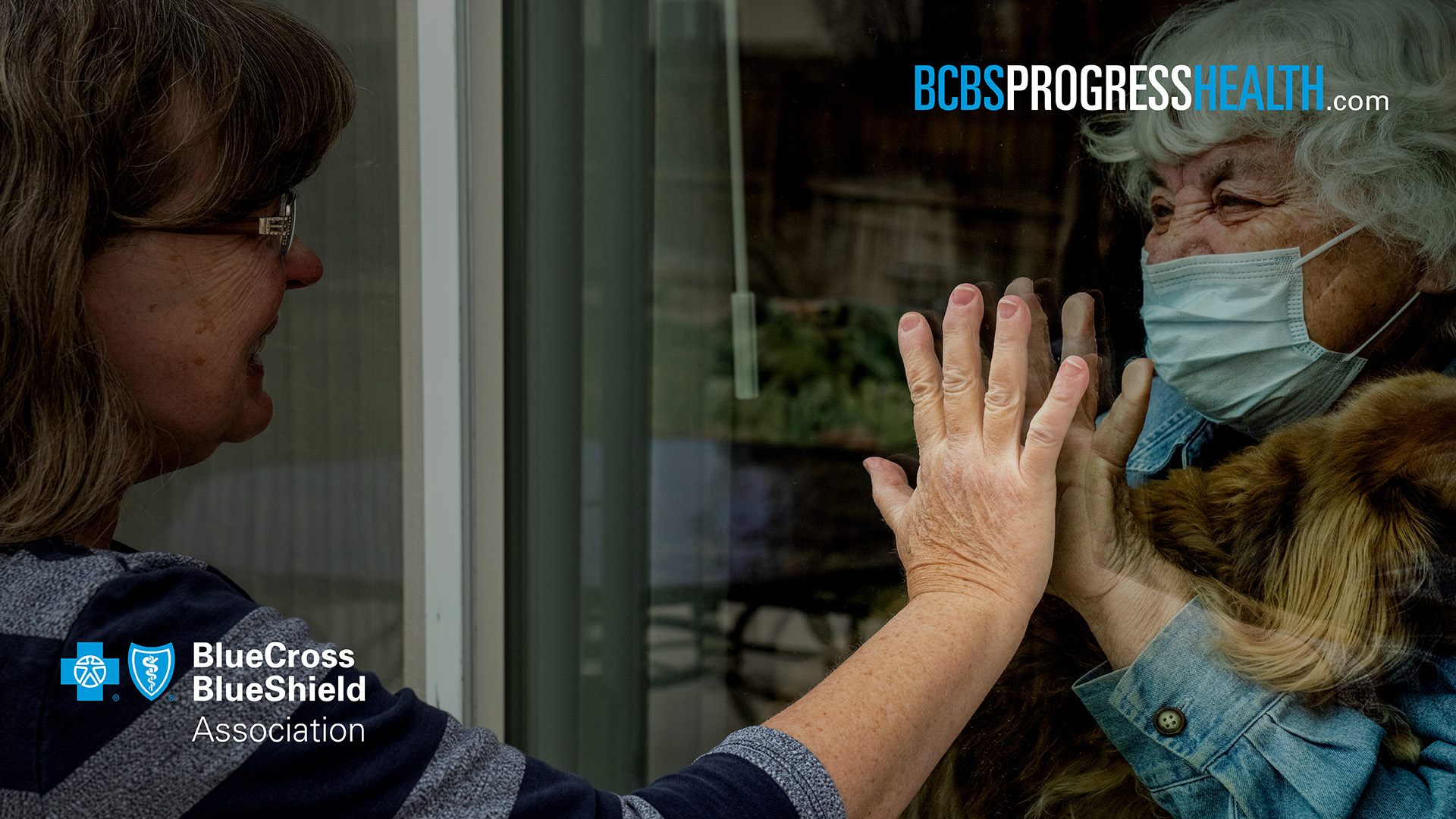| |
| |
| |
| Presented By Blue Cross Blue Shield Association |
| |
| Vitals |
| By Caitlin Owens ·Mar 26, 2021 |
| Good morning. Today's word count is 889, or a 3-minute read. |
| |
| |
| 1 big thing: The new vaccine waiting game |
 |
|
| Illustration: Sarah Grillo/Axios |
| |
| States are expanding eligibility for COVID vaccines by broad age groups — and some are opening it to all adults, Axios' David Nather reports. Yes, but: That doesn't always mean they have enough vaccine supplies to offer appointments to everyone in the new groups. - So even though the vaccine supplies are ramping up, many local leaders and health officials are trying to lower people's expectations so they don't get disappointed when their long wait for the vaccine isn't actually over.
- That's the reality check many newly eligible people will face throughout the country even as President Biden ups his goal to 200 million shots in his first 100 days.
What they're saying: "The problem is not the eligibility standards. The problem is the supply," New York City Mayor Bill de Blasio said in a local TV interview this week after New York Gov. Andrew Cuomo expanded eligibility to everyone 50 and over. - "As you add more eligibility, it's going to mean people in some cases will wait longer, because we still don't have the supply we need."
The other side: Russ Schwartz and Katherine Quirk, who launched a Facebook group to help Florida seniors find vaccines, say the state — which is expanding by age groups — has steadily increased its vaccine supplies and sites to the point where it's easier to help people find options now. Between the lines: Some states are moving a lot faster than Biden's goal of making all Americans eligible for vaccinations by May 1. - "It could put some states and governors in a difficult position if they say 'yes, we're opening the gates' and a lot of people can't get appointments," said KFF's Jennifer Kates.
- "It's going to be a balancing act, and the messaging is going to be very important."
Go deeper. |
    |
| |
| |
| 2. A decade of stagnant public health spending |
 Data: Alfonso YN, U.S. public health neglected: flat or declining spending left states ill equipped to respond to COVID-19; Chart: Will Chase/Axios Public health spending in most of the country stayed flat or declined in the decade following the Great Recession, "leaving states ill equipped to respond to COVID-19 and other emerging health needs," according to a new study published in Health Affairs. By the numbers: The study found that public health spending dropped from $80.40 per capita in 2008 to $75.83 in 2018. - The only category of spending that saw an overall increase was injury prevention, which includes substance abuse.
- The estimated per capita cost of the coronavirus pandemic is $50,000, per the study.
The bottom line: "Without institutional reform, states are susceptible to continued neglect of public health with only short-term emergency infusions of federal funding in the midst of a crisis such as COVID-19," the authors write. - "Without substantial and sustained investment by states and ongoing robust federal support, the US may well continue its 'default' approach to public health funding: 'neglect, panic, repeat.'"
|
    |
| |
| |
| 3. 70% of the world could be vaccinated this year |
| 12 billion doses of 13 different vaccines could become available by the end of the year — enough to vaccinate 70% of the globe, a new analysis from the Duke Global Health Innovation Center shows. Yes, but: Key barriers, like unpredictable manufacturing and the variants, make it difficult to ensure supply can be distributed equitably, the report says, per Axios' Marisa Fernandez. The big picture: Many wealthy countries including the U.S. have taken a nationalistic approach to vaccine doses, which has fueled a huge gap in supply. What they're saying: "Alongside the challenge of vaccine nationalism, our work highlights that manufacturing and supply issues remain the critical barriers," Andrea Taylor, lead researcher for the Launch and Scale Speedometer program, said in the analysis. - "There is very little transparency in the landscape, so it is difficult for country leaders to assess the feasibility of delivery schedules or to understand the risks and contingencies."
|
    |
| |
| |
| A message from Blue Cross Blue Shield Association |
| Connecting vulnerable seniors with vaccines |
| |
 |
| |
| Blue Cross and Blue Shield companies nationwide are using data and local relationships to help vaccinate millions of at-risk seniors living in underserved and vulnerable communities where COVID-19 vaccines are most inequitable. See how. |
| |
| |
| 4. The latest in the U.S. |
 Data: The COVID Tracking Project; Note: Does not include probable deaths from New York City; Map: Andrew Witherspoon/Axios Amazon plans to start vaccinating frontline employees in the next few weeks, starting with fulfillment centers in Missouri, Nevada and Kansas. Biden came to his first press conference eager to talk about COVID-19, but was instead repeatedly asked about other growing crises. Various organizations including the World Health Organization are saying early data indicate there may be a significant increase in diseases like tuberculosis in the years ahead due to the COVID-19 pandemic, Axios' Eileen Drage O'Reilly and Alison Snyder report. |
    |
| |
| |
| 5. The latest worldwide |
 Exports of the Oxford/AstraZeneca vaccine from the world's largest vaccine manufacturer, the Serum Institute of India, have been paused as India grapples with a new spike in cases, Reuters reports. Why it matters: India hasn't exported any doses at all over the past week, according to Foreign Ministry data — a worrying sign for the COVAX initiative, which is relying heavily on Indian-made vaccines to supply low-income countries, Axios' Dave Lawler writes. The big picture: India is one of the world's four primary vaccine producers. Only one of those, China, is not currently restricting exports or discussing doing so. - The U.S. isn't exporting any doses aside from a one-off deal with Mexico and Canada, and the EU is now debating export curbs.
India had exported 65% of the doses it produced as of last week, according to Airfinity, a science information and analytics company. Driving the news: India's government is placing new emphasis on plans to vaccinate 70% of the population of 1.38 billion amid a sharp rise in cases this month. - The spike is particularly discouraging because an unexpected decline in infections beginning last fall had led to hopes that Indian cities could be approaching herd immunity.
|
    |
| |
| |
| 6. Dog of the week |
| Banga and his housemates. Photo: David Polet Meet Banga (and his housemates)! - They appear to tolerate group naps, although none of them look thrilled about sharing one bed.
What's next: Vitals is clearly becoming more accepting of different kinds of pets, but dogs will always be my favorite. |
    |
| |
| |
| A message from Blue Cross Blue Shield Association |
| Taking action to fight the pandemic |
| |
 |
| |
| Blue Cross and Blue Shield companies have committed more than $7 billion to help the nation address the COVID-19 outbreak by: - Providing premium relief.
- Enhancing access to telehealth.
- Investing to support people in need.
Learn more. |
| |
| This newsletter is written in Smart Brevity®. Learn how your team can communicate in the same smart, clear style with Axios HQ. |









No comments:
Post a Comment